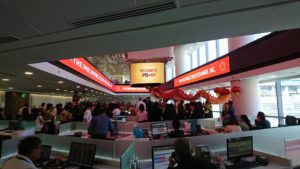Question: John Bogle of the United States is an avid proponent of index funds. He claims that no actively managed portfolio can beat the broad market index; and he has history to back him up. Is this the case with the Philippines? —asked at “Ask a friend, ask Efren” free service available at www.personalfinance.ph, Facebook and SMS.
Answer: Wikipedia cites John Clifton “Jack” Bogle (May 8, 1929 – Jan. 16, 2019) as an American investor, business magnate and philanthropist. Bogle was the founder and chief executive of The Vanguard Group. Jack is known to have created the first index fund.
Bloomberg, in its article dated Jan. 17, 2019, said: “By word and example, Bogle proselytized on behalf of patient, long-term investing in a diversified group of well-run companies. He focused his advocacy on index funds, those that buy and hold the broadest mixes of stocks. He cautioned that the pursuit of quick trades and short-term profits typically helped investment advisers more than investors.”
In a book titled, “The Little Book of Common Sense Investing,” Bogle wrote that instead of persuading investor clients to be active traders in stocks, investors should just follow the maxim of “Don’t do something. Just stand there.”
Modern portfolio theory (MPT) agrees with Bogle as MPT says that in an efficient market, no one can continuously make above normal profits because any information that investors think they could profit on in an unusual way is immediately reflected in prices.
The jury is still out, so to speak on whether the Philippine stock market is efficient or not. But let us see if there are funds that can outperform the Philippine Stock Exchange Index (PSEi).
In data compiled from end-2007 to end-2018 by our company, the Personal Finance Advisers Philippines Corporation, or PFA, we found that four equity mutual funds (MFs) and six equity unit investment trust funds (UITFs) outperformed the PSEi based on the compounding of their annual returns. Now that it is a bit difficult to believe given that pooled funds in general bear expenses in terms of fees and taxes that exert a drag on their returns. In contrast, the PSEi does not have such fees and taxes.
On the other hand, pooled funds do benefit from reinvesting any cash dividends that they earned. The PSEi does not factor in such reinvested dividends.
Fortunately, the Philippine Stock Exchange recently came out with the PSEi Total Return Index (PSEi TRI), which includes cash dividends. And as opposed to the total of 10 pooled funds that outperformed the PSEi, two of them still managed to outperform the PSEi TRI over the same period.
Some may say that the playing field is still not level as pooled funds have to bear management fees and taxes. But while adding back management fees may somehow level the playing field, in reality, investors in pooled funds cannot be exempted from paying such fees.
The conclusion is that active trading can still generate returns higher than simply mimicking the broad market index. But doing so requires the steady hands and cold calculation of professionals who benefit from size of funds, expertise and time to invest directly in the stock market. In short, they are all SET. Unfortunately, many people who need to be investors are not all SET. So, what is the alternative?
Number one, always remember that what you need to beat is not any index but the return that is needed to provide you with a brighter future. That return is determined by your monetized goals versus what you have to start with and what you can add periodically, balanced by your appetite for risk-taking. Talk to a financial planner about the return you need to make.
Second, just hire the experts who are all SET by doing peso cost averaging on the pooled funds that they manage.
As a final point, always have goals in investing that are other than making more money. Otherwise, your investing will easily foster greed, a trait that has led to the downfall of many in money management.


